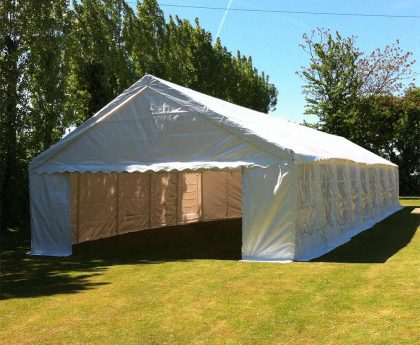Kindergarten plays a significant role in introducing children to formal education and laying the groundwork for their future academic achievements. Whether you’re a parent or an educator, it’s crucial to grasp the strategies that can help establish a foundation for early learning. This blog will delve into these strategies in detail, shedding light on how they can contribute to children’s journeys.
1. Establishing a Caring and Inclusive Environment
To cultivate a learning atmosphere, it is vital to create an inclusive and nurturing setting within an early-learning kindergarten. Teachers should strive to make every student feel valued, respected and secure. By embracing perspectives and celebrating differences, children are encouraged not only to express themselves freely but also to appreciate the uniqueness of others.
2. Embracing Play Based Learning
Play-based learning is a component of childhood education, including kindergarten. It promotes engagement. Enables children to explore their interests while developing cognitive, social, emotional and physical skills in an enjoyable manner. Educators can design activities that foster creativity, problem-solving abilities, teamwork and self-expression through play.
3. Prioritise the Development of Literacy Skills
It is crucial to focus on developing literacy skills at the kindergarten level. Teachers should create plenty of opportunities for children to engage in activities that promote both oral language development and pre-reading skills. It can include storytelling sessions and read-aloud sessions, followed by discussions about the story and characters’ emotions.
4. Encourage Hands-on Experiences with Mathematics
Mathematics plays a huge role in our lives, which is why it is important to introduce maths concepts early on, starting from kindergarten. Children should have access to hands-on experiences that allow them to explore concepts such as number sense counting patterns and shape recognition. Incorporating maths into fun activities like building blocks, mazes, and pattern formations can help kindergarteners develop skills that will prepare them for mathematical challenges.
5. Foster a Love for STEAM Subjects
Introducing children to Science, Technology, Engineering, Arts and Mathematics (STEAM) at an age helps cultivate their curiosity and passion for these fields. Children can develop foundational skills by incorporating age activities that encourage exploration, problem-solving, and creative thinking into the kindergarten curriculum.
6. Promote Collaboration and Independent Thinking
Kindergarten provides an opportunity for children to learn the importance of collaboration while also fostering independence in their thinking processes.
Educators have the opportunity to include group projects or activities where children can collaborate, share their ideas, provide feedback to one another, and work together to solve problems. This not only helps in the emotional growth of students but also promotes effective communication skills and fosters critical thinking abilities in young learners.
7. Maintaining Communication Between Parents and Educators
It is crucial for teachers and parents to keep communication channels open for a child’s success. Regular updates about a child’s progress enable parents to understand their strengths as areas that need improvement. Parent-teacher conferences, classroom newsletters, event invitations and parent information sessions are some avenues through which effective communication can be established.
8. Social and Emotional Development
Kindergarten provides an opportunity to focus on emotional development. Teachers can incorporate activities that help children recognise and manage their emotions, develop empathy, and build relationships with their peers. By creating a classroom environment that emphasises kindness and respect, kindergarteners develop social skills that will benefit them throughout their academic journey.
9. Integrating Technology
Incorporating technology into kindergarten classrooms can enhance playing and learning experiences. Choosing apps, websites, or digital tools suitable for all children’s ages can offer engaging opportunities for them to explore subjects such as maths, language arts and science. By incorporating technology in a way and with objectives, preschoolers can develop the skills they need to navigate the digital world while enhancing their learning.
10. Encouraging a Growth Mindset
A growth mindset is about helping students believe in their ability to learn and grow through effort and persistence. Students who have a growth mindset are more likely to take risks and handle challenges with resilience. When mentoring kindergarten learners, it is important to cultivate a perspective on failure and provide feedback that focuses on effort, critical thinking, and problem-solving. This guidance helps them embrace challenges and develop self-esteem as well as a persistent work ethic. It shapes them into learners who are not afraid to innovate.
11. Exploring the Outdoors
Using spaces as an extension of the classroom can offer experiential learning opportunities for kindergarteners. They love exploring environments like gardens and nature trails. Setting up a classroom area that can be easily changed or modified allows for rich experiences where children can interact with plants, insects and birds.
Whether it’s planting seeds or conducting an insect survey outdoors, teachers unlock opportunities where children can marvel at the wonders of nature. These end experiences play a role in grounding young children’s education. Different adaptations naturally help in honing care, curiosity, and inhibiting inspiration. Active adventures are indeed engaging!
12. Encouraging involvement of community resources/speakers
Incorporating professionals from the community as guest speakers can ignite the imagination and broaden children’s understanding of various subjects. The opportunity to learn directly from experts specialising in fields can ignite interest and curiosity among kindergartners. Community members may present about artists, writers, community workers or sports achievers, thereby providing children with a widened perspective of the world beyond them.
Conclusion
Kindergarten plays a role in laying the foundation for a child’s academic success. By implementing strategies such as creating a nurturing environment promoting play-based learning focusing on literacy and maths development, inspiring a love for STEAM subjects
and encouraging collaboration and independent thinking
educators effectively prepare their students for learning.




